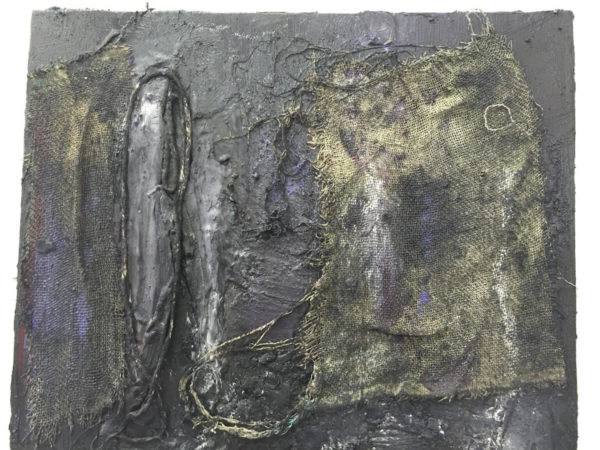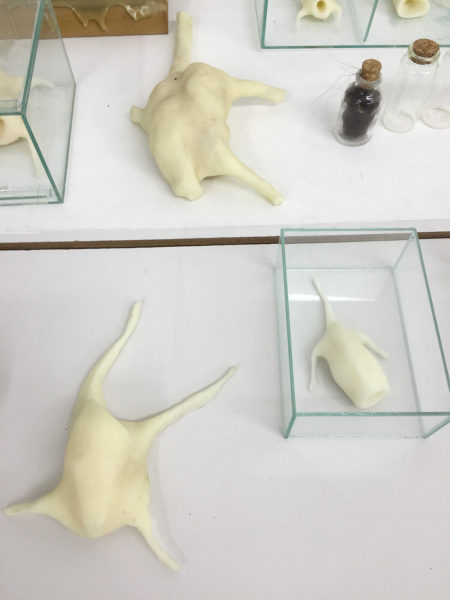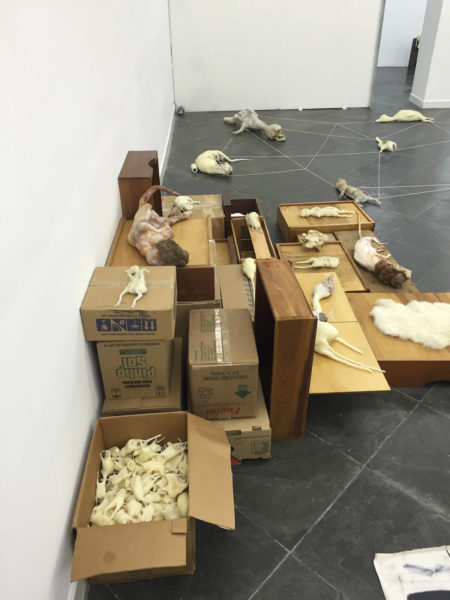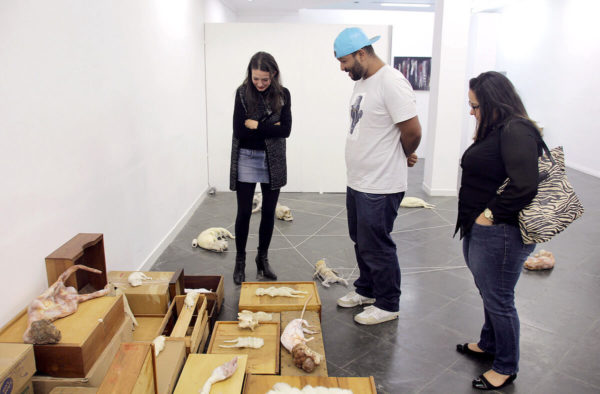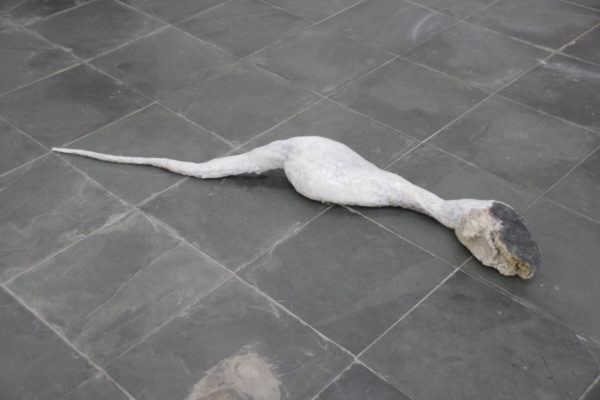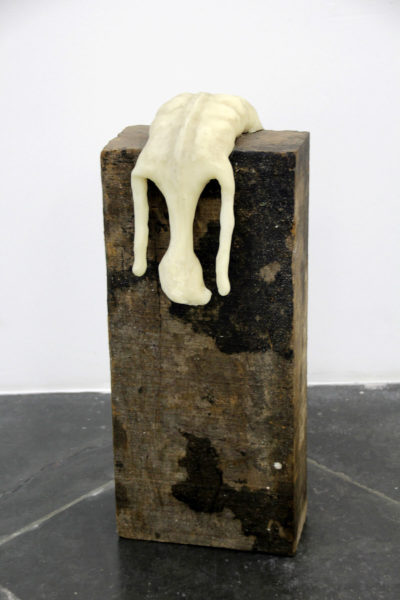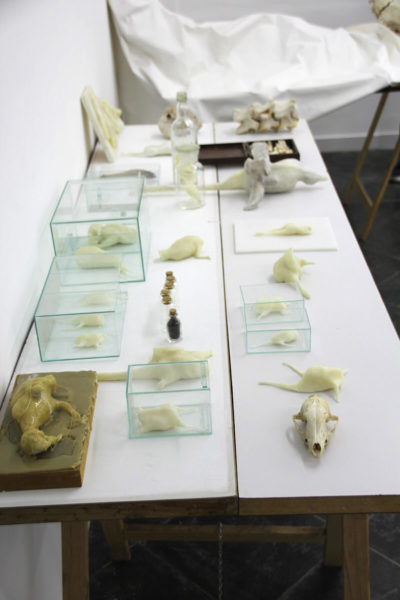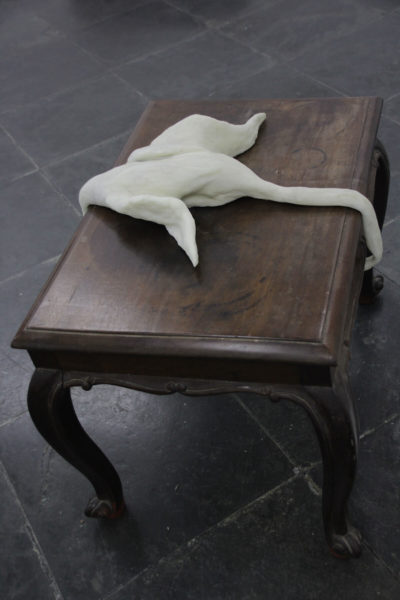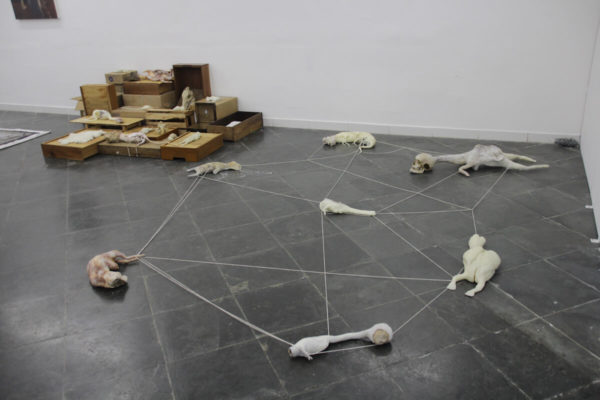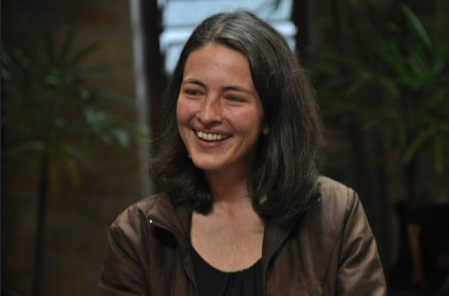
Born in São Paulo, where he lives and works. He went through theater to settle down in the visual arts. According to the artist: “The investigation of my work is matter in transformation, bodies and their unfolding. There is no dead matter or form that is stable. Whether in photographs, sculptures or drawings, there is always a hybridity of forms and materials, a suspended look where life and death are confused”.
“The generosity of the studio space transformed the dimension of my work and provided me with a deeper understanding of poetic research.”
— Renata
“I seem to have a certain fear and horror of that living being who is not human and who has the same instincts as ours, though freer and more indomitable.[1]”
— Peter Pál Pelbart, filósofo
